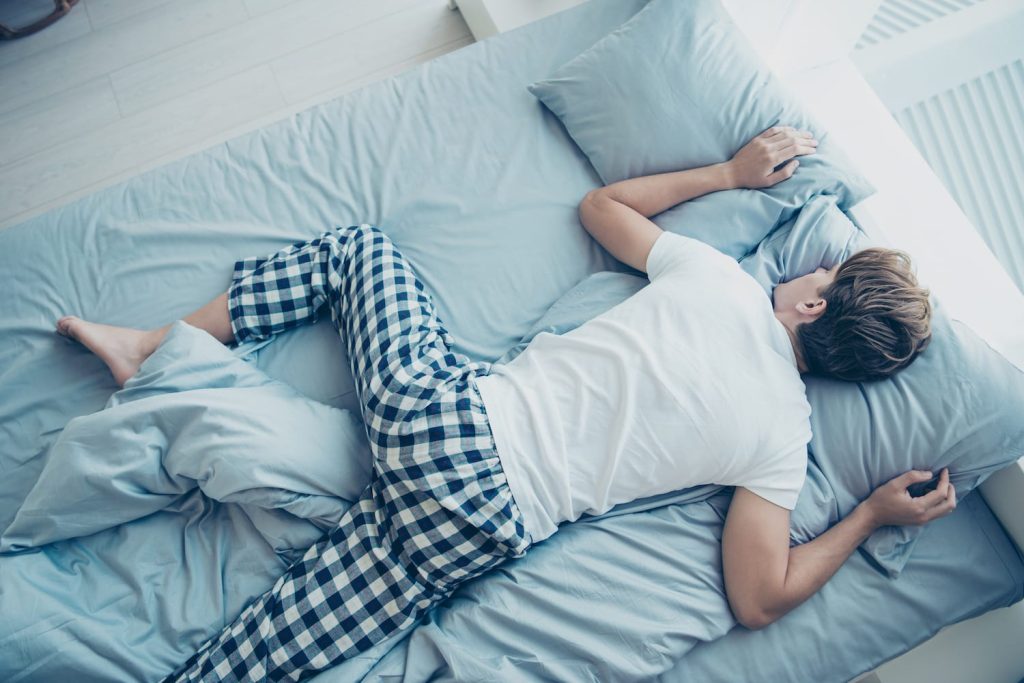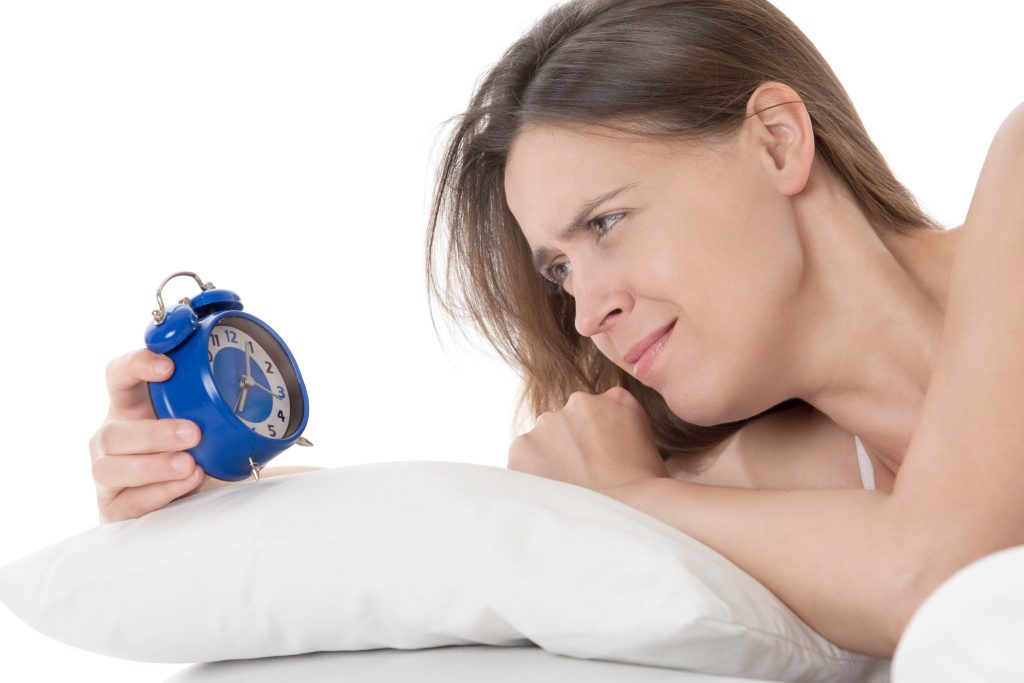Introduction
When extra work, social commitments, or entertainment comes up, the first thing we sacrifice is sleep. But quality sleep is more than just a break from activity, it goes beyond just an act of rest; it is connected to our health and mental wellbeing. The Eunice Kennedy Shriver National Institute of Child Health and Human Development (NICHD) defines sleep as a biological process that helps people process new information, stay healthy, and re-energize.

Sleep and Mental Health
The brain works hard while you sleep, organizing memories, analyzing feelings, and clearing out toxins accumulated over the day. When this essential time is cut short, everything starts to break apart. People frequently feel less focused, angrier, and sometimes even more depressed or anxious.
The effects of poor sleep do not take weeks to manifest. Short and Louca’s (2015) research on the topic ‘Sleep deprivation leads to mood deficits in healthy adolescents’ showed that even after just one night of sleep deprivation, most adolescents reported feeling mentally drained and emotionally off balance.
This is because sleep deprivation causes the amygdala, the area of the brain that controls our emotions, to become hyperactive and intensify its reaction to unpleasant emotional inputs. This makes small annoyances feel far more significant than they should, and routine disappointments become enormously magnified. When this happens, most people find it harder to control their emotions, actions, and ability to adjust to change. The ability to perform tasks quickly may deteriorate, and making mistakes become more frequent.
This may increase the risk of mental health disorders including anxiety and sadness or possibly worsen pre-existing mental health illnesses. It is also important to remember that getting too little sleep can contribute to or be a symptom of several health issues, including diabetes, high blood pressure, cardiovascular disease and even obesity.
How to Spot Sleep Deficiency

Lack of sleep can cause you to feel tired and restless throughout the day. This affects your performance at work or school, your ability to drive safely, and even your social interactions. The National Heart, Lung, and Blood Institute (NHLBI) recognizes how sleepy you feel during the day as a key indicator of sleep deficiency.
Signs of sleep deficiency include feeling the urge to doze off in situations such as sitting and reading, watching TV, sitting in a meeting or classroom, riding in a car for extended periods, talking to someone, sitting quietly after lunch and waiting in traffic.
If you experience any of these, it’s possible you may not be getting enough rest. Sleep deficiency may affect your capacity to concentrate, learn, and respond appropriately, eventually resulting in difficulties when making decisions, solving problems, and recalling information.
Sleep Smarter, Not Harder: Mastering Quality Sleep Hygiene

Now, you might spend plenty of time in bed, but if you are waking up frequently, tossing and turning, or spending too much time in light sleep stages, you won’t wake up feeling rested or refreshed.
Here’s where good sleep hygiene comes into play. The behaviors and routines that support quality sleep are called sleep hygiene. Establishing a sleep-friendly environment and practices such as keeping the bedroom dark and cool as well as minimizing screen time before bed can have a significant impact.
Also, note that you can customize your practices for good sleep hygiene, but you should practice it consistently to make it a habit.
How to Improve Sleep and Mental Health
If you are struggling to sleep or not getting the quality of sleep you need, these are a few things you can do to nudge your mind and body toward better rest. This would ultimately improve your mental health.
- Try to go to bed and wake up at the same time every day, even on weekends. Do well to stick to a routine. This helps regulate your internal body clock. It becomes a habit with time, and you would find yourself waking up and going to bed just as you have trained yourself, naturally.
- The bedroom should be a haven for rest. Ensuring a comfortable and conducive place for sleep enhances the quality of sleep. Make sure the room is dark and cool, with a comfortable mattress and pillows for a great rest. Consider eliminating noise and using blackout curtains to reduce light exposure during afternoon naps if needed.
- Avoid consuming caffeine and other stimulants as they can stay in your system for hours, keeping you alert and distorting your sleep routine.
- Develop a relaxing pre-sleep routine or relaxation techniques such as night reading, meditation, or stretching. This can help reduce stress and with consistent practice, can become a signal to your brain that it is time to rest.
- Try setting your devices (phones and/or tablets) aside at least an hour before bed. This is not just about the effect of the blue light from your devices but also to avoid the mental stimulation, the endless scrolling, the news alerts that keeps you awake after you have decided to go to bed.
Understand that investing in sleep is equal to investing in your emotional well-being, your ability to manage stress, and your overall quality of life. Therefore, extra work, social commitments, and late-night partying are things you would not want to do at the expense of your mental health and your health in general. Give your brain and body the chance to heal, rest, and prepare to face whatever tomorrow brings as you go to bed.
References
- Blackwelder, A., Hoskins, M., & Huber, L. (2021). Effect of Inadequate Sleep on Frequent Mental Distress. Preventing Chronic Disease, 18(18). https://doi.org/10.5888/pcd18.200573
- Motomura, Y., Kitamura, S., Oba, K., Terasawa, Y., Enomoto, M., Katayose, Y., Hida, A., Moriguchi, Y., Higuchi, S., & Mishima, K. (2013). Sleep Debt Elicits Negative Emotional Reaction through Diminished Amygdala-Anterior Cingulate Functional Connectivity. PLoS ONE, 8(2). https://doi.org/10.1371/journal.pone.0056578
- National Heart, Lung, and Blood Institute. (2022a, March 24). What Are Sleep Deprivation and Deficiency? National Heart, Lung, and Blood Institute. https://www.nhlbi.nih.gov/health/sleep-deprivation
- National Heart, Lung, and Blood Institute. (2022b, June 15). Sleep Deprivation and Deficiency – How Sleep Affects Your Health | NHLBI, NIH. Www.nhlbi.nih.gov; National Heart, Lung, and Blood Institute. https://www.nhlbi.nih.gov/health/sleep-deprivation/health-effects
- National Institute of Child Health and Human Development. (2019, April 29). About Sleep. Https://Www.nichd.nih.gov/. https://www.nichd.nih.gov/health/topics/sleep/conditioninfo
- National Institute of Neurological Disorders and Stroke. (2024, September 5). Brain Basics: Understanding Sleep. Www.ninds.nih.gov; National Institute of Neurological Disorders and Stroke. https://www.ninds.nih.gov/health-information/public-education/brain-basics/brain-basics-understanding-sleep
- Short, M. A., & Louca, M. (2015). Sleep deprivation leads to mood deficits in healthy adolescents. Sleep Medicine, 16(8), 987–993. https://doi.org/10.1016/j.sleep.2015.03.007
- Suni, E. (2020, August 14). Mastering Sleep Hygiene: Your Path to Quality Sleep (N. Vyas, Ed.). Sleep Foundation. https://www.sleepfoundation.org/sleep-hygiene
- Suni, E., & Dimitriu, A. (2024, March 26). Mental health and sleep. Sleep Foundation. https://www.sleepfoundation.org/mental-health
- Vail Health Foundation. (2023, March 6). Sweet Dreams: Sleep Awareness Week, March 12-18. Vail Health Foundation. https://vailhealthfoundation.org/news/sweet-dreams-sleep-awareness-week-march-12-18/?gad_source=1&gclid=Cj0KCQjw3vO3BhCqARIsAEWblcDImFOkgoMhr7FWWyUUlkjRr1LPgrKXMOylV14A_CRHqK60fc9QBKYaAnSSEALw_wcB

